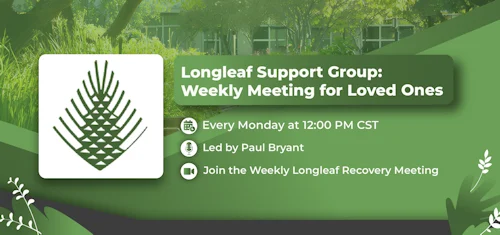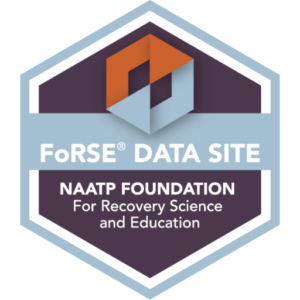Maybe you’re struggling with depression and feeling lost about treatment options. Perhaps someone you care about has been diagnosed with bipolar disorder and you don’t know how to help. Or possibly you’re dealing with addiction and wondering what recovery actually looks like. Whatever brought you here, you’re looking for answers about psychoeducation therapy and how it might fit into your healing journey.
At Longleaf Recovery & Wellness, we understand that knowledge is power when it comes to mental health and addiction recovery. That’s why psychoeducation therapy is a cornerstone of our evidence-based treatment programs across Alabama.
This isn’t just sitting in a lecture hall. Psychoeducation therapy involves interactive discussions, skill-building exercises, and practical tools you can use in daily life. It’s also called psychoeducational therapy, psycho-education, or simply psycho ed.
The main components include:
– Information sharing: Learning about your diagnosis, symptoms, and treatment options
– Skill development: Practicing coping strategies and problem-solving techniques
– Support building: Connecting with others who understand your experience
– Real-world application: Using what you’ve learned outside of therapy sessions
Psychoeducation therapy is an evidence-based intervention, meaning research supports its effectiveness. It’s used in hospitals, outpatient clinics, and addiction treatment centers across the country.
How Psychoeducation Therapy Works in Mental Health Treatment
Let’s say you’ve been diagnosed with depression. In traditional therapy, you might spend weeks talking about your feelings. In psychoeducation therapy, you’d also learn how depression affects brain chemistry, why certain medications work, and what warning signs to watch for. This knowledge helps reduce the mystery and fear around your condition.
The approach typically includes four core elements. First is the information component, where you learn facts about your condition. Second is skill training, where you practice techniques like deep breathing or identifying negative thought patterns. Third is the support element, often through group discussions with others facing similar challenges. Fourth is application, where you create personalized plans for managing symptoms in real-world situations.
Research from the National Institute of Mental Health shows that people who receive psychoeducation as part of their treatment have better outcomes and lower relapse rates compared to those who receive standard care alone.
Types of Psychoeducation Formats Available
Group sessions bring together 6-12 people with similar experiences. These typically last 60-90 minutes and meet weekly for several weeks. You’ll learn alongside others who understand what you’re going through, which can reduce feelings of isolation and shame.
Common group topics include:
– Understanding your diagnosis and symptoms
– – Medication management and side effects
– Stress management techniques
– Recognizing early warning signs
– Building healthy relationships
Family sessions include your loved ones in the learning process. This format recognizes that mental health and addiction affect entire families, not just individuals. Family members learn how to provide support without enabling harmful behaviors.
According to the Substance Abuse and Mental Health Services Administration (SAMHSA), family involvement in treatment can reduce relapse rates and improve long-term recovery outcomes.
One-on-one sessions allow for personalized attention and privacy. This format works well for people who feel uncomfortable sharing in groups or have unique circumstances that require individualized approaches.
What Happens During a Psychoeducation Session
Sessions usually begin with a check-in where participants share how they’ve been feeling since the last meeting. This helps the therapist understand what’s working and what challenges people are facing.
The educational portion comes next. The therapist presents information about a specific topic, such as how anxiety affects the body or why certain medications take time to work. This isn’t a boring lecture – therapists use visual aids, handouts, and interactive discussions to keep everyone engaged.
Common session activities include:
– Watching educational videos about brain chemistry
– Completing worksheets to track mood or symptoms
– Practicing relaxation techniques together
– Role-playing difficult conversations with family members
– Discussing homework assignments from previous sessions
The session wraps up with goal-setting for the coming week. You might commit to using a specific coping technique or completing a particular worksheet. Sessions typically last 45-90 minutes depending on the format and setting.
Common Topics Covered in Psychoeducation Therapy
Understanding your condition forms the foundation. You’ll learn what causes symptoms, how your brain and body are affected, and why certain treatments work. For depression, this might include learning about neurotransmitters like serotonin and dopamine. For addiction, you’d explore how substances change brain chemistry and create cravings.
Medication education is another crucial topic. Many people have questions or concerns about psychiatric medications. Psychoeducation therapy provides factual information about how medications work, potential side effects, and the importance of taking them as prescribed.
Additional topics often include:
– Recognizing early warning signs of relapse
– Building effective coping strategies
– Improving communication with family and friends
– Creating structured daily routines
– Managing stress and triggers
– Developing long-term recovery plans
The specific focus depends on your diagnosis and treatment goals. Someone with bipolar disorder might spend significant time learning about mood tracking, while someone with anxiety might focus more on relaxation techniques and exposure strategies.
Insurances We Accept








Benefits of Psychoeducation Therapy
Knowledge reduces fear and stigma. When you understand that depression is caused by brain chemistry changes, not personal weakness, shame decreases. This understanding helps you approach treatment as you would any medical condition.
Treatment adherence improves significantly. People who understand why they’re taking medication or attending therapy are more likely to stick with their treatment plan. A 2023 study published by the National Institute on Drug Abuse found that addiction treatment programs including psychoeducation had 25% higher completion rates.
Family relationships often improve. When family members understand your condition, they can provide better support and communicate more effectively. They learn the difference between helping and enabling, which benefits everyone involved.
Skills learned in psychoeducation therapy transfer to real-world situations. Unlike some forms of therapy that focus primarily on insight, psychoeducation emphasizes practical tools you can use immediately.
Psychoeducation Therapy Options in Alabama
Alabama offers psychoeducation therapy through various settings and providers. Understanding your options helps you find the right fit for your needs and circumstances.
Outpatient mental health clinics throughout Alabama provide psychoeducation as part of comprehensive treatment programs. These clinics often offer both individual and group formats, allowing you to choose what works best.
Addiction treatment centers, including residential and outpatient programs, typically include psychoeducation as a standard component of care. At Longleaf Recovery & Wellness, our Alabama locations integrate psychoeducation into all treatment levels.
Other settings offering psychoeducation include:
– Hospital-based programs
– Community mental health centers
– Private practice therapists
– Peer support organizations
Most insurance plans in Alabama cover psychoeducation therapy when it’s part of a treatment plan. Coverage varies by provider and specific plan details, so checking with your insurance company helps clarify what’s covered.
Steps to Start Psychoeducational Treatment
A licensed therapist or psychiatrist can assess your specific needs and recommend appropriate psychoeducation programs. During this consultation, discuss your goals, preferences for group versus individual sessions, and any concerns about participating.
Consider your comfort level with sharing personal information in groups, your schedule constraints, and whether family involvement would be helpful. Group sessions offer peer support but less privacy. Individual sessions provide personalized attention but miss the community aspect.
Bring a list of current medications, any previous therapy experiences, and specific questions you want answered. Most programs provide handouts or workbooks, but having a notebook for personal notes can be helpful.
Psychoeducation programs typically run 6-12 weeks, though some may be shorter or longer. Regular attendance maximizes the benefits, as each session builds on previous learning.
Frequently Asked Questions About Psychoeducation Therapy in Alabama
Most programs run 6-12 weeks with weekly sessions lasting 60-90 minutes. Some intensive programs may be shorter, while others addressing complex conditions might extend longer.
Many Alabama insurance plans cover psychoeducation therapy when it’s part of a documented treatment plan. Coverage varies by provider, so contacting your insurance company directly provides the most accurate information.
Psychoeducation therapy typically complements rather than replaces other forms of treatment. Most people benefit from combining psychoeducation with individual therapy, medication management, or other interventions.
Therapists providing psychoeducation therapy in Alabama must be licensed mental health professionals with specific training in psychoeducational methods and the conditions they’re treating.
Psychoeducation therapy follows a structured curriculum led by licensed professionals, while support groups are typically peer-led and focus more on sharing experiences than formal education.
Your path to understanding and managing mental health or addiction challenges starts with taking that first step. Psychoeducation therapy provides the knowledge and tools that can make the difference between struggling alone and moving forward with confidence.
At Longleaf Recovery & Wellness, our Alabama treatment programs include comprehensive psychoeducation delivered by experienced professionals who understand the unique challenges you’re facing. We’re committed to providing the education and support you need for lasting recovery. To learn more about our services and verify your insurance coverage, please contact us today.






